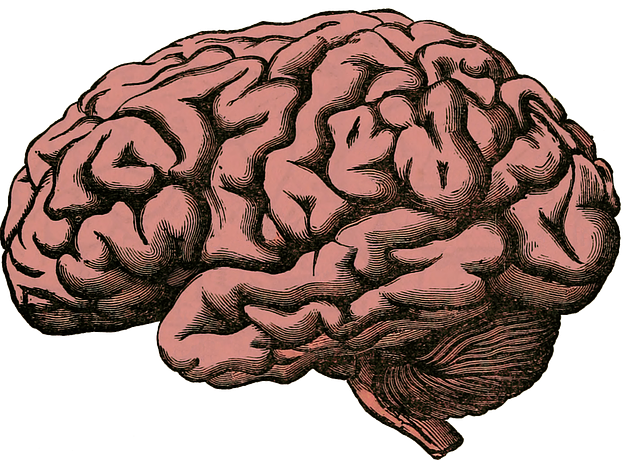Stress is a key driver of problem gambling, leading to impulsive behaviors and mental health deterioration. Effective therapy for adults gambling integrates self-care practices like exercise, meditation, quality sleep, and hobbies to manage stress, build resilience, and make healthier decisions. Cognitive Behavioral Therapy (CBT) targets negative thought patterns, teaches emotional regulation, and promotes healthy coping mechanisms, reducing anxiety and burnout. Mindfulness and meditation enhance self-esteem, mental health awareness, and calmness, helping individuals manage intense emotions tied to gambling therapy. Sustainable lifestyle changes, regular exercise, balanced nutrition, adequate sleep, and mindfulness practices significantly reduce stress, combat anxiety and depression. A strong support network through meaningful relationships and communication is vital for holistic well-being during recovery from gambling addiction.
Stress reduction is a vital aspect of maintaining mental health, especially for adults prone to gambling. In this article, we explore effective methods to alleviate stress, focusing on its significant impact and offering practical solutions. We delve into Cognitive Behavioral Therapy (CBT), a powerful tool proven to reduce stress and help those struggling with gambling. Additionally, we discuss mindfulness techniques, lifestyle changes, and the importance of support networks for long-term wellbeing, providing comprehensive strategies for adults seeking relief from gambling-related stress.
- Understanding Stress and Its Impact on Adults Gambling
- Cognitive Behavioral Therapy: A Powerful Tool for Stress Reduction
- Mindfulness and Meditation Techniques to Calm the Mind
- Lifestyle Changes and Support Networks for Long-Term Wellbeing
Understanding Stress and Its Impact on Adults Gambling

Stress is a common experience for many adults, but when left unaddressed, it can lead to severe consequences, especially for those engaging in gambling activities. Gambling addiction, or problem gambling, often goes hand in hand with heightened stress levels. Individuals may turn to gambling as a coping mechanism to alleviate immediate stress, but this temporary relief comes at the cost of long-term emotional well-being promotion techniques. The impact of chronic stress on gamblers can manifest in various ways, from impaired decision-making and increased impulsivity to more severe mental health issues like anxiety and depression.
Recognizing the relationship between stress and gambling behavior is a pivotal step towards implementing effective therapy for adults gambling. Incorporating self-care practices into one’s routine can serve as a powerful tool in managing stress levels. Developing a consistent self-care routine for better mental health involves activities such as regular exercise, mindfulness meditation, adequate sleep, and engaging in hobbies that bring joy and relaxation. These practices not only help reduce immediate stress but also foster resilience, enabling individuals to navigate gambling triggers and make more balanced decisions regarding their participation in gambling activities.
Cognitive Behavioral Therapy: A Powerful Tool for Stress Reduction

Cognitive Behavioral Therapy (CBT) is a highly effective therapy for adults struggling with gambling addiction, offering valuable tools to manage stress and combat compulsive behaviors. This form of therapy focuses on identifying and changing negative thought patterns that contribute to anxiety and stress. By challenging these unhelpful thoughts and replacing them with more realistic and positive ones, individuals can gain control over their emotions and actions.
CBT sessions often involve learning relaxation techniques, problem-solving strategies, and enhanced social skills training. These skills are crucial for preventing burnout and managing the heightened stress levels commonly associated with gambling addiction. Through CBT, individuals discover healthy ways to cope with triggers, reduce anxiety relief, and make more informed decisions, ultimately fostering a sense of control and well-being.
Mindfulness and Meditation Techniques to Calm the Mind

Mindfulness and meditation have emerged as powerful tools to combat stress and anxiety for adults, especially those dealing with gambling therapy. These techniques focus on training the mind to be fully present in the current moment, thereby reducing the impact of stressful thoughts and memories. Through mindfulness exercises, individuals learn to observe their feelings without judgment, fostering a sense of calm and self-control.
Meditation practices, such as deep breathing and guided imagery, encourage relaxation and enhance mental health awareness. Regular engagement in these activities can improve self-esteem and overall well-being, offering a much-needed respite from the intense emotions often associated with gambling therapy. By integrating mindfulness into daily routines, adults can develop a stronger connection to their inner selves, thereby better managing stress and promoting positive mental health outcomes.
Lifestyle Changes and Support Networks for Long-Term Wellbeing

Making sustainable lifestyle changes is a vital part of long-term stress reduction and overall wellbeing. This includes adopting healthy habits like regular exercise, balanced nutrition, adequate sleep, and mindfulness practices such as meditation or deep breathing exercises. These alterations can significantly impact an individual’s resilience to stress and improve their mental health. For instance, engaging in physical activity releases endorphins, which act as natural mood lifters, thereby reducing feelings of anxiety and depression.
Additionally, building and maintaining a strong support network is crucial for managing stress and fostering emotional intelligence. This involves cultivating meaningful relationships with friends, family, or even professional peers who can offer empathy, understanding, and practical assistance during challenging times. Effective communication strategies, such as expressing one’s feelings openly and practicing active listening, contribute to these supportive connections. For adults struggling with gambling addiction, therapy sessions can also create a safe space for emotional exploration and the development of coping mechanisms, further reinforcing their journey towards long-term wellbeing.
Stress reduction is a multifaceted approach, especially for adults dealing with gambling addiction. By understanding the impact of stress and employing evidence-based methods like Cognitive Behavioral Therapy (CBT) and mindfulness practices, individuals can gain significant control over their mental health. Integrating lifestyle changes and building strong support networks further enhances long-term wellbeing, offering a holistic path to recovery and improved quality of life for those affected by gambling addiction. For adults struggling with gambling, these strategies provide essential tools in their journey towards managing stress effectively.









